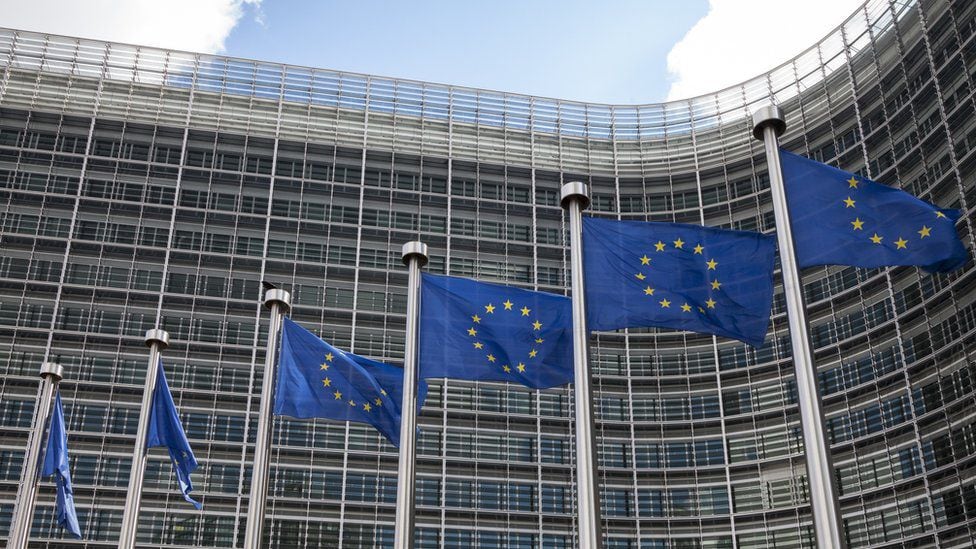
The European Union (EU) faces a difficult 2023 in the field of gas supply, in an already deteriorated economic context, with recession drums to the rhythm of galloping inflation, exorbitant energy prices and interest rate hikes decreed by the European Central Bank ( ECB).
LOOK HERE: Experts differ on covid booster vaccine guidelines
The economic difficulties that the EU is going through are largely marked by the energy pulse with Russia, which since the invasion of Ukraine has been limiting or cutting off gas pumping to the community club while Brussels accuses Moscow of manipulating prices and using energy What “weapon of war”.
The European Union, which before the conflict bought 40% of the gas it consumes in Russia, has reduced that dependency to below the 10% threshold, in exchange for making Norway the first supplier of the EU and paying prices exorbitant for deliveries of liquefied natural gas (LNG) from countries such as the United States, Nigeria, Azerbaijan or Qatar.
This context has led to some quick decisions to prepare for this winter, such as energy saving plans or accelerating the filling of gas tanks, as well as recovering part of the extraordinary profits from energy companies.
But what worries is the energy situation in 2023, a year that according to the International Energy Agency could be more complicated than 2022, which was a warm year, still with abundant flows of Russian gas and a confined Chinese economy and consuming little. gas.
All of that could change in the coming year, which is why the EU is preparing to deal with any turmoil that may come. The winter 2023-2024 is of particular concern.
The fear now in Brussels is not so much to overcome the current winter, which the EU is facing with full tanks and after a relatively warm autumn, but rather to make sure that it can fill the reserves so as not to struggle for the next cold season, and that you will not have to pay for gas at impossible prices.
The deposits should not have dropped much more than 40% of their capacity at the end of this winter so that the countries have enough margin to recharge them, according to the Commission’s calculations, although in parallel it is expected that the Member States will inaugurate several terminals to absorb LNG that will provide some relief to homes and businesses.
The Twenty-seven have managed to close, “in extremis”a complex negotiation to establish a maximum price for gas purchases in wholesale contracts, which will be 180 euros per megawatt-hour as long as there is also a difference of more than 35 euros with respect to other international LNG markets.
Community partners have also approved a system to start buying some LNG together, and negotiate cheaper contracts, and have pledged to show solidarity with each other if shipments become scarce.
RECESSION OUTLOOK
The uncertain energy scenario comes after a better-than-expected first half of 2022 due to the recovery after the coronavirus pandemic and despite the impact of the Russian war against Ukraine.
The conflict made energy, food and raw materials more expensive, which favored a slowdown in GDP in the third quarter. The blow was less than expected, but it will worsen until it leads to a technical recession in the first quarter of 2023, according to forecasts by the European Commission.
Beyond the contraction of 0.1% of GDP that Brussels predicts at the beginning of the year, the main challenge for the bloc is inflation that has reached record levels, exceeding 10% in November in the euro area, already affecting the entire shopping basket and only has signs of moderating over the next year.
This scenario has forced governments to take measures to cushion the loss of purchasing power of companies and households, be it with reductions in VAT on gas and electricity, direct aid to pay the electricity or gasoline bill or liquidity lines. for some companies, with a cost to public coffers of 1.3% of GDP so far this year.
This strategy will continue in the coming months and governments should not put sticks in the wheels with their budgetary policies, as they have been warned by both Frankfurt and Brussels, which ask them to be more selective when it comes to granting aid and make them ugly that most of those adopted so far – around 70% – have been too generalized.
In the coming months, the Eurogroup has recognized, it will be a matter of adopting temporary actions and more focused on vulnerable households and companies to support them, but without discouraging the reduction in energy demand or derailing public finances already deteriorated as a result of the pandemic .
“If these measures were extended for all of 2023, this would aggravate the deficit by 2% in general among the Member States, so what we are asking is to make them more specific and not just prolong what is already in place,” he said a few days ago in the European Commissioner for the Economy, Paolo Gentiloni.
Source: EFE
Source: Gestion
Ricardo is a renowned author and journalist, known for his exceptional writing on top-news stories. He currently works as a writer at the 247 News Agency, where he is known for his ability to deliver breaking news and insightful analysis on the most pressing issues of the day.












